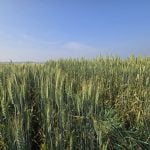Michelin and Tereos have said they will join forces to develop a rubber derived from sugar beet, grain and waste that could replace some of the natural and oil-based synthetic rubber used in tires.
They aim to build an industrial unit by 2020, said a spokesman for Tereos, the world’s fourth-largest sugar company.
Michelin, one of the world’s largest tire makers with an output of nearly 170 million tires last year, is seeking to diversify its sources of supply as the petroleum-based synthetic rubber it uses becomes more expensive.
Read Also

India slaps 30 per cent import duty on yellow peas
India has imposed a 30 per cent duty on yellow pea imports with a bill of lading date on or after Nov. 1, 2025.
“The idea is to have a greener tire — to replace the component that is not green, (such as) synthetic rubber, or even a part of the Hevea (natural) rubber by biomass derived from residues, waste, et cetera,” the Tereos spokesman said on Monday.
The tires would be made with an alcohol derived from sugar beet, wheat or maize, or from crop waste and residues, said Tereos, which is the largest European maker of industrial alcohol.
Tests have shown rubber can be made from biomass, but the companies had not yet decided which commodities to use, nor what percentage of rubber content in a tire that it should replace, the spokesman said.
The deal between grower-owned Tereos, whose sugar cane and grains unit Tereos Internacional is listed in Sao Paulo, and Michelin is part of the BioButterfly project, which seeks ways to make environmentally friendly synthetic rubber.
The tire-making industry accounts for about 60 per cent of global rubber consumption.
— Reporting for Reuters by Sybille de La Hamaide in Paris.











